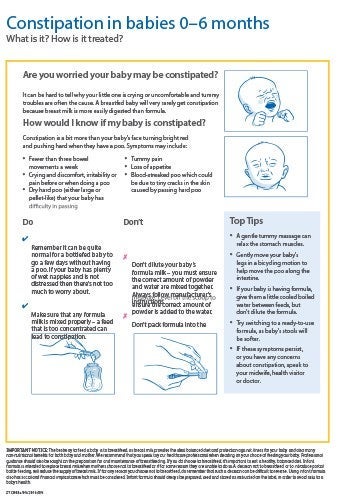Overview
Research shows that functional gastrointestinal disorders (FGIDs) occur in up to 55% of all infants in the first 6 months of life.1
FGIDs include a number of symptoms that affect the gastrointestinal tract in otherwise healthy infants.2 These symptoms are often frequent, age dependent, and related to the on-going physiological development of the gut that occurs naturally after birth. Although they usually resolve as the infant matures, they can cause considerable distress and anxiety for the parents as well as the infant.
Signs of constipation in babies
Constipation is defined as a decrease in the frequency of bowel movements characterised by the passing of hardened stools which may be large and associated with straining and pain.3
There is a wide variation in bowel movement frequency among infants – some pass stools several times a day, others only a few times a week. Parents will learn to recognise the patterns specific to their baby.
Common signs of constipation in babies can include following signs and symptoms:
- Loss of appetite
- Lack of energy
- Being irritable, angry, or unhappy
- Foul-smelling wind and stools
- Abdominal pain and discomfort
Infant constipation – advice for parents and caregivers
NICE recommendations advise that dietary changes and ensuring adequate fluid should be in combination with medical and behavioural treatments. Dietary intervention should not be used as first line treatment4. Parents should seek advice from their GP. A laxative (usually an osmotic) may be prescribed – followed, if necessary, by a stimulant.
For babies not yet weaned
- Bottle-fed babies may be given cooled boiled water – the amount is calculated upon a baby’s weight and is usually given following feeds; it is important to not dilute the formula feeds5
- Try gently moving the baby’s legs in a bicycling motion; gentle massage of the stomach may also help to stimulate the bowels5
For babies now eating solids
- Babies should be given cooled boiled water or diluted fruit juice
- A diet rich in fruit and vegetables can help (best fruits are apples, apricot, peaches, pears, plums, prunes, raspberries and strawberries). All foods should be prepared as appropriate for the developmental stage of the infant




